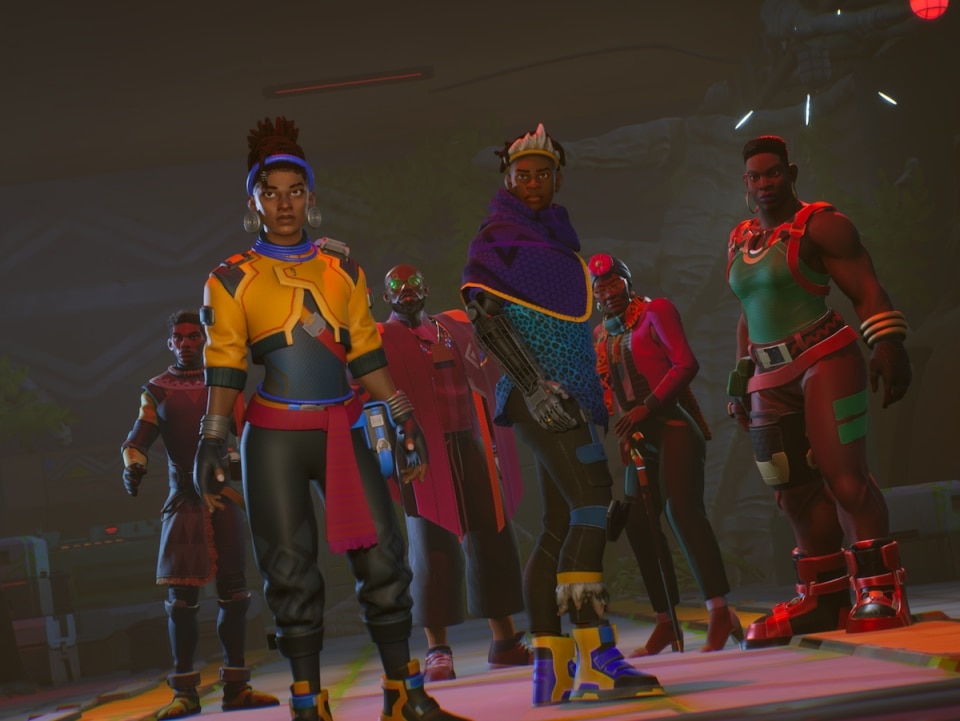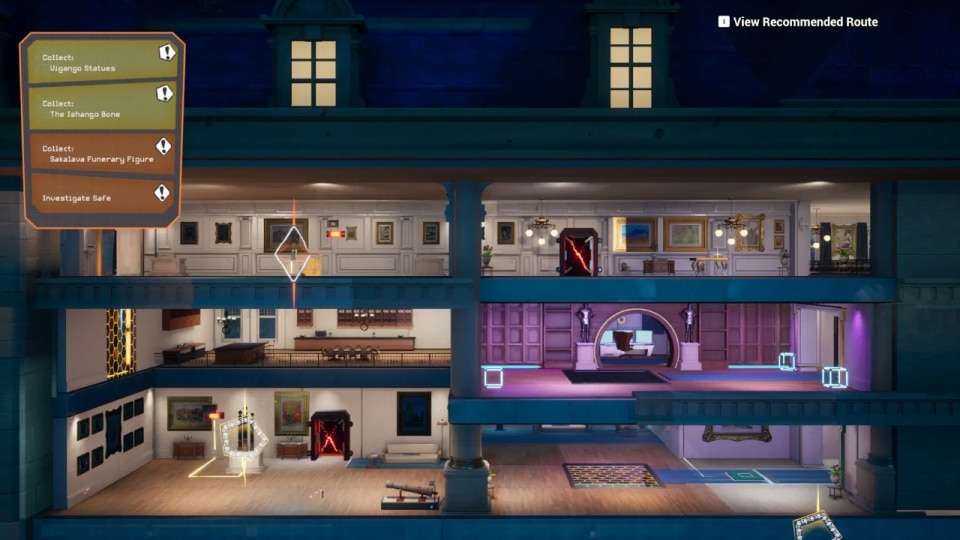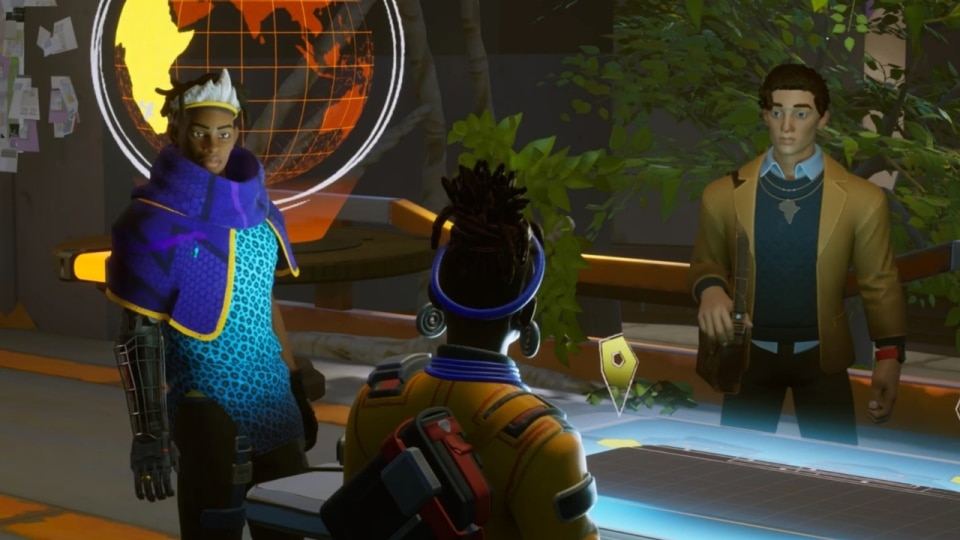A team moves stealthily through the corridors of a museum, dodging cameras and slipping past security systems. Their movements recall Tomb Raider and the stealth mechanics of Assassin’s Creed—but this isn’t a heist: it’s a return.
This is Relooted, a video game developed by the South African collective Nyamakop, which transforms the restitution of African artifacts looted during the colonial era into an interactive, immersive, afrofuturist experience. Set in museums and private collections inspired by real locations, the game casts the player as part of a team of “righteous thieves” on a cultural recovery mission.
Presented at Day of the Devs and supported by Epic Games, Relooted blends political storytelling with emotional engagement, offering an interactive narrative that subverts traditional museum display logics. No longer passive spectators, players become active agents, invited to intervene in the course of cultural heritage history.
Each mission unfolds in three phases—exploration, action, and escape—set in environments inspired by Western museums.
“We looked for artifacts with compelling stories about how they were looted,” explained Ben Myres, the game’s Creative Director, in a post. One such example is the sacred Ngadji drum from Kenya, originally used to announce the rise of a new ruler, confiscated by the British in 1902 and held ever since at the British Museum.
We looked for artifacts with great stories in terms of how they were looted
Ben Myres
The mission revolves around recovering 70 real-life objects currently held in international museum collections. Once “liberated,” the artifacts are transferred into a digital sanctuary within the game, where players can explore their histories, symbolic meanings, and original cultural and spiritual contexts.
Each object featured in Relooted has been reconstructed in 3D using archival photographs or scans. For many of these items, the video game now offers the only way to see them: in reality, few are on public display. Most have spent years in museum storage—hidden from view, removed not only from their places of origin but also from the gaze.
The first Kenyan people to see it in the last 100 years were in the 2010s
Ben Myres, on Ngadji drum

But restitution isn’t just a hot topic in the realm of gaming—it’s a real, ongoing process that is reshaping the relationship between Europe and Africa. The Netherlands is only the latest among European countries to have initiated an official restitution to Nigeria. On June 21, 2025, a ceremony was held in Lagos to mark the repatriation of 119 artifacts, known as the Benin Bronzes, looted during the colonial era and until recently held in Dutch collections, including those of the Museum of Leiden. It is the largest cultural restitution in the country’s history: 113 objects came from state collections, and 6 from the Municipality of Rotterdam.
Similarly, Finland recently returned a 17th-century ceremonial kataklé stool, part of the royal treasure of Abomey, looted by French troops in 1892. Held at the Finnish National Museum since 1939, the stool was the final missing piece in a group of 26 artifacts that France had partially returned between 2021 and 2024.

Benin, understood both as the modern nation-state and the historical heir to the Kingdom of Dahomey, is now one of the main protagonists in this process. But its role is not limited to receiving: something is also shifting internally. The country is actively promoting new museum models, fostering alternative imaginaries, and enabling forms of cultural restitution that go beyond the mere physical return of objects.
Two key institutions are taking shape in Benin City to support this new phase: the Museum of West African Art (MOWAA) and the Edo Museum of West African Art (EMOWAA). The former, already partially operational, is conceived as a multidisciplinary campus with conservation labs, archives, and training programs aimed at strengthening local expertise. The latter, designed to host the Benin Bronzes, was initially assigned to David Adjaye’s studio, which withdrew from the project in 2023. EMOWAA is now being redefined, with the goal of integrating exhibition functions with education and community engagement.
Even before the video game, this movement had found expression in cinema. Dahomey, a film by Mati Diop and winner of the Golden Bear at the 2024 Berlinale, follows the return to Benin of 26 sacred objects that had long been held at the Musée du Quai Branly in Paris.
Diop doesn’t merely document a material transfer—she probes the deeper meaning of restitution: not just what to return, but to whom, how, and with what consequences. The film shifts the focus away from the object itself and toward the symbolic, political, and emotional intelligence it embodies—and everything its return has the power to reactivate.




